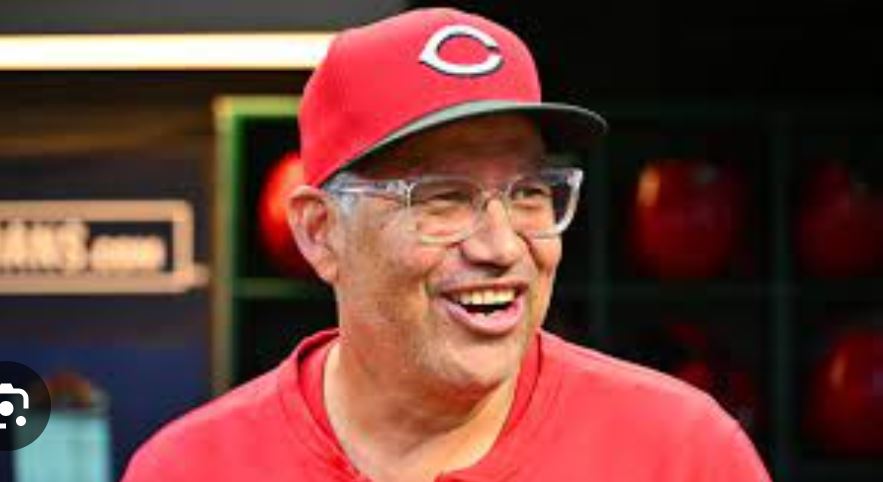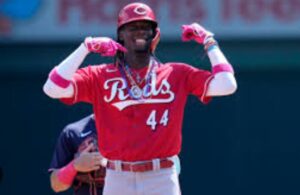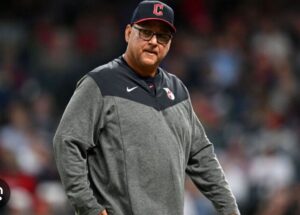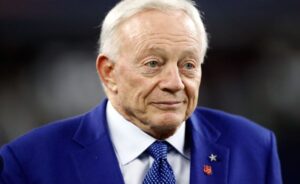
When Freddie Benavides was in the visitors’ clubhouse at Progressive Field, he always shared a space with the other coaches.
That was not the case on Tuesday.
Two days after Cincinnati sacked manager David Bell, Benavides made his debut as temporary manager in the Reds’ 6-1 loss to the Guardians at Progressive Field.
“Now, I have my own locker and desk,” Benavides remarked. “It’s a little weird, but I love it.”
Benavides, a baseball lifer, was chosen by Cincinnati in 1987 and worked in the team’s farm system for nearly ten years after retiring as a player in 1996 until joining the Major League staff in 2019.
“I’m very excited for the opportunity, whether it’s for five days or 10 years,” said Benavides, who is willing to interview for the full-time role. “I’m really going to like it. I have a terrific staff, and the players have been really welcoming and courteous. It has been wonderful. I’ve already had a few conversations; it’s been amazing.”
Benavides was keen to point out that his interim ascension to manager was “bittersweet,” because it came at the expense of Bell, who was popular with Reds players.
“[Bell being fired] isn’t a good feeling, because a lot of it should fall on us because we didn’t perform,” Jonathan India, the CEO, said. “It is always unfortunate that the manager bears the bulk of the blame, but I certainly accept responsibility. I know I didn’t perform to my full capacity, and I know some players would agree, but all we can do is go on.
“I guess a couple of us were questioning why it happened five days before the season ended. It’s upsetting, but you can’t keep your head down and be upset. It is part of the ruthless game we play. I believe there will be a lot of changes during the offseason.
Brent Suter initially felt the news of Bell’s termination was bogus.
“It wasn’t a fun way to go to bed on Sunday,” he told me.
Suter, like India, promoted the notion of accountability.
“It’s part of the growth this team needs to take to get to the next level,” Suter told the crowd. “We must all accept responsibility for our manager losing his job. [We need to] learn from it, understand what went wrong, correct our mistakes, and hold each other more accountable [while] playing a tighter brand of baseball.”
All-Star starting pitcher Hunter Greene attributed the team’s lack of success to a variety of factors.
“There’s a lot of different factors, I can’t give you that true answer,” Greene said. “There are fundamental difficulties, such as injuries, and holding one another accountable. There are many distinct factors. All of these factors contribute to our team’s success.
Tuesday’s setback was due to a lack of execution rather than simple errors. The Reds played error-free baseball and made no baserunning errors (both of which have plagued the team this season), but they only managed four hits against starter Tanner Bibee and the Guardians’ bullpen.
“He kept us off balance and balls off the barrel,” explained Benavides.
Carson Spiers, who took over for scheduled starter Jakob Junis due to personal reasons, gave three runs on five hits and two walks over four innings.
“That’s a guy who showed and found out he was starting after the bus got here,” Benavides informed the crowd. “He gave us four strong innings. Credit to him.”
Cincinnati’s lone run came in the fourth inning, when Tyler Stephenson doubled and was driven in by Spencer Steer.
“We didn’t swing the bats like we did before,” Benavides remarked. “The guys had energy, but we fell behind early.”

While five games will not be enough time for Benavides to turn around the problems that have plagued Cincinnati all season, it will provide him with some time to help develop a culture that the team’s core can carry forward into next year, regardless of who is in charge.
“You’ve got to go out there every day and bust your tail,” he told me. “It all comes down to paying attention to detail and constantly improving. Fundamental baseball. Mistakes will happen, and that is where the players will learn, but there will be consequences if the same mistakes are made repeatedly.”







